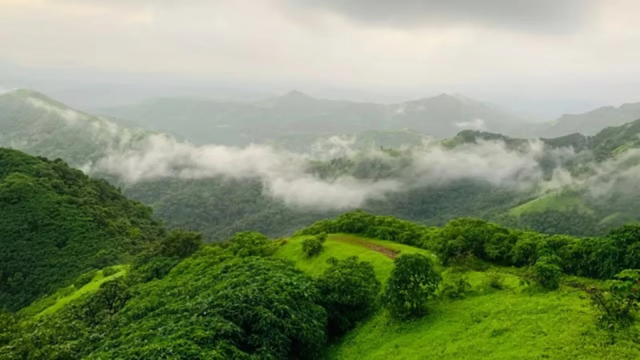ARTICLE AD BOX
 The commission said the project is linked to a significant increase in coal transportation, which would exacerbate air pollution from coal dust, posing a severe risk of respiratory ailments and other health issues for residents living along the route.
The commission said the project is linked to a significant increase in coal transportation, which would exacerbate air pollution from coal dust, posing a severe risk of respiratory ailments and other health issues for residents living along the route.
Reiterating its opposition to the double tracking of the South-Western Railway line between Hospet and Vasco Da Gama, the Diocesan Commission for Ecology, Archdiocese of Goa and Daman Sunday called for “responsible development”, saying projects should not come at the cost of environment or the well-being of the local population.
In a statement, the commission said its opposition is based on the project’s proven ecological destructiveness and persistent public outcry. It said the Supreme Court in 2022 set aside the clearance granted by the standing committee of the National Board for Wildlife for doubling the railway line from Castle Rock in Karnataka to Kulem in Goa.
“This landmark ruling came after the court-appointed Central Empowered Committee (CEC) submitted a damning report that termed the project inefficient, unjustified and potentially destructive. The CEC’s report and the subsequent Supreme Court order highlighted that the project would cause irreparable harm to the fragile ecosystem of the Western Ghats,” the Commission said.
The commission said the project is linked to a significant increase in coal transportation, which would exacerbate air pollution from coal dust, posing a severe risk of respiratory ailments and other health issues for residents living along the route.
“The double-tracking threatens to demolish ancestral homes, heritage houses and religious structures that are an integral part of Goa’s rich history and culture. The project has led to contentious land acquisition issues, with many locals as well as communidade committees opposing the forceful takeover of their properties and farmlands,” it said.
The commission urged the government and authorities “for a complete reassessment and exploration of alternate development models that are both socially and economically viable and ecologically sustainable”.
Rev. Dr Bolmax Pereira, convenor, Diocesan Commission for Ecology, said “To continue with this project, despite the judicial pronouncement and the sustained public opposition, is a disregard for both the rule of law and the democratic will of the people. We will continue to advocate for a future where our natural heritage is protected and not sacrificed for short-sighted economic gains”.
Story continues below this ad
Last week, the Goa government said that no capacity expansion of coal transportation will be permitted in the state, adding that certain reports suggesting that additional land is being acquired for coal handling in connection with the Hospet-Vasco double tracking project are “incorrect”.
The chief minister’s office, in a statement, said that the limited acquisition of 0.6 hectares initiated by the Ministry of Railways in Cansaulim, Sancoale and Issorcim villages is solely for “banking/stabilisation support to safeguard nearby houses, provision of road access to landowners and correction of alignment mismatches identified in earlier surveys”.
“The project will facilitate tourism development and faster movement of existing freight, including coal, in a manner that reduces incidental pollution by decreasing exposure time,” it added.
The clarification came after a post on X by the Ministry of Railways drew backlash from Opposition parties, who alleged that additional land is being acquired for the project to expand coal handling capacity. The doubling of the railway track from Castle Rock in Karnataka to Kulem in Goa is among the three linear projects in Goa opposed by environmentalists and locals over the years.



.png)
.png)
.png)






















 English (US) ·
English (US) ·